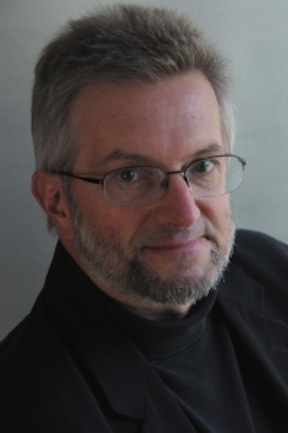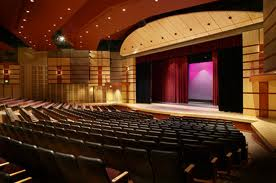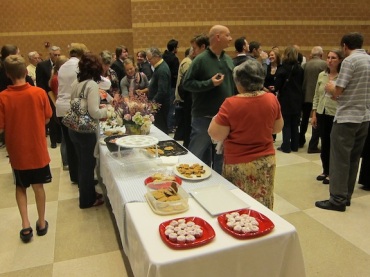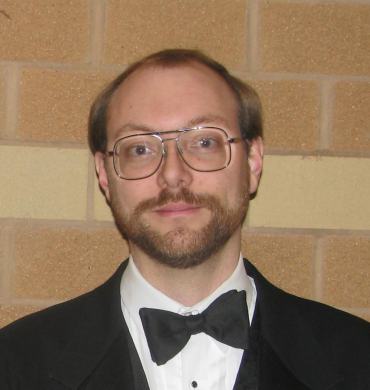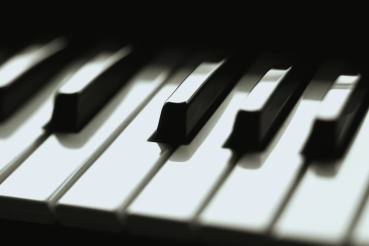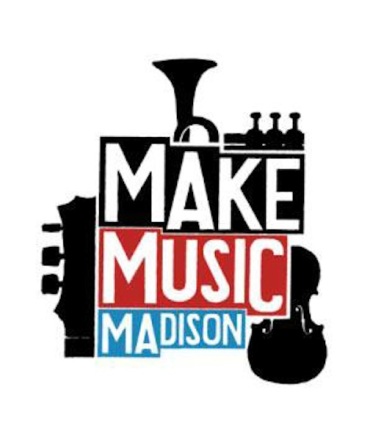The Well-Tempered Ear
Classical music: Musicology professor Susan C. Cook is the new director of the UW-Madison School of Music.
Leave a Comment
By Jacob Stockinger
The semester is over and commencement at the University of Wisconsin-Madison has already been held. But in case you haven’t already heard, Musicology professor Susan C. Cook (below, in a photo by Michael Forster Rothbart) is the new director of the UW-Madison School of Music.
Last I heard, some university committee or administrator had to give the final approval, but that that was a formality and no trouble or problem was expected.
As you can see from the biography taken from the UW-Madison School of Music website, Cook is very accomplished and original in her eclectic interests and scholarship, and she has some serious high-level administrative experience.
“Susan C. Cook is professor of music and also serves as the academic associate dean for the Arts and Humanities in the Graduate School.
“Her teaching and research focus on contemporary and American music of all kinds and demonstrate her abiding interest in feminist methodologies and cultural criticism.
“Current works-in-progress include an exploration of gender, commemoration and the post-Great War work of Maurice Ravel, American opera singer Alma Gluck, musical imagery in the novels of Carson McCullers, and female blackface minstrelsy.
“She is the author of “Opera for a New Republic,” co-editor of “Cecilia Reclaimed” as well as essays in “The Cambridge History of Twentieth-Century Music,” the “Garland Encyclopedia of World Music” and “Teaching Music History.”
“Her essay “Watching Our Step: Embodying Research, Telling Stories,” on the gendered and racialized meanings of ragtime social dance won the Lippincott Prize from the Society for Dance History Scholars. She has also held the Walt Whitman Chair in American Culture Studies as part of the Fulbright Distinguished Teaching Program in the Netherlands.”
Susan Cook takes over July 1 from John Stevens (below), the Yale University-trained composer, and tuba and euphonium professor, who is stepping down early to return to return to teaching for one final year before retiring.
The Ear wishes good luck to Susan Cook, who heads up an outstanding program, with gifted faculty and talented students, but also faces some daunting financial and staffing challenges in the coming years if the UW School of Music is to maintain its excellent reputation.
Classical music: The Wisconsin Chamber Choir celebrates the centennial of British composer Benjamin Britten this Saturday night, June 1, at 7:30 p.m.
Leave a Comment
By Jacob Stockinger
To mark the centennial of the great modern British composer Benjamin Britten, the Wisconsin Chamber Choir (below top) will perform “Benjamin Britten and Friends.”
Special guest performers are the Britten Choir (below, in a photo by Karen Holland) of the Madison Youth Choirs, conducted by Randal Swiggum.
The concert is this Saturday night, June 1, at 7:30 p.m. in St. Stephen’s Lutheran Church, 5700 Pheasant Hill Road, in Monona, Wisconsin.
Tickets are $15 for adults and $10 for students. They are available via Brown Paper Tickets or www.wisconsinchamberchoir.org or at the door.
Benjamin Britten (below, 1913-1976) was perhaps the greatest choral composer of the 20th century. In celebration of Britten’s 100th anniversary this year, the Wisconsin Chamber Choir has assembled a delightful program featuring Britten’s quirky cantata, “Rejoice in the Lamb,” along with his rapturously beautiful “Five Flower Songs” (at bottom in a YouTube video).
Complimenting Britten’s works are pieces by his “friends” (both figuratively and literally), including music by Arvo Pärt, Henry Purcell, Percy Grainger and Frank Bridge, who taught Britten. The Britten Choir of Madison Youth Choirs, conducted by Randal Swiggum (below), will make a special appearance performing music by Britten and others.
Organist and pianist Mark Brampton Smith (below) joins the WCC performing the virtuoso keyboard parts in Britten’s Rejoice in the Lamb and in several of Percy Grainger’s boisterous folksong arrangements.
Founded in 1999, the Madison-based Wisconsin Chamber Choir has established a reputation for excellence in the performance of oratorios from the Baroque and Classical eras, a cappella masterworks from various centuries, and world premieres. Robert Gehrenbeck (below), the director of choral activities at the University of Wisconsin-Whitewater, is the WCC’s Artistic Director.
Classical music: The Madison Chamber Choir will perform an eclectic concert of works by J.S. Bach, Amy Beach and the Beach Boys on Friday, May 31.
Leave a Comment
By Jacob Stockinger
A blog fan and local singer writes:
I’m writing on behalf of the Madison Chamber Choir (below, in a photo by Jim Pippett) to let you know of our upcoming spring concert in the hope that you might spread the word to Madison-area music lovers through your fabulous blog.
We’re calling the concert “Bach & Beach.” It will be held on Friday, May 31, at 8 p.m. at Covenant Presbyterian Church, 3236 South Segoe Road. Admission is a suggested donation of $10.
Directed by Anthony Cao (below top, in a photo by Jim Pippitt) , the concert will be an eclectic offering that will include music of J.S. Bach (“Jesu, Meine Freude” and “Sleepers Wake”), as well as some work of Amy Beach (below and at the bottom in a YouTube video are three songs) and, yes, The Beach Boys.
I’m attaching an e-version of a publicity postcard that includes some relevant details.
Adds The Ear: I didn’t get specific titles of works by Beach and The Beach Boys. But if the concert is half has half the fun and color of the poster (below), it should be a memorable event.
Tags: Amy Beach, Beach Boys, Friday, J.S. Bach, Jacob Stockinger, Jesu Meine Freude, Johann Sebastian Bach, Madison, The Beach Boys, YouTube
Classical music: After the recent death of its namesake, the 14th Van Cliburn International Piano Competition is being held May 24-June 9 in Fort Worth, Texas. Here are links to many kinds of information, including live webcasts of performances, lists of competitors and repertoire, and blogs of the competition rounds. Plus, the Middleton Community Orchestra closes out its season Wednesday night.
1 Comment
A REMINDER: Tomorrow night (Wednesday, May 29) at 7:30 p.m. in the Middle Performing Arts of Middleton High School, the Middleton Community Orchestra (below, performing under conductor Steve Kurr) will wrap up its third season with a performance of “Romantic Favorites” that include Schumann’s “Julius Caesar” Overture, Saint-Saens’ Cello Concerto No. 1 with UW-Madison student Mark Bridges as soloist, and Tchaikovsky’s famous and final Symphony No. 6 (“Pathetique”). Tickets are $10 for adults, free for students and young people. The box office opens at 6:30 p.m. and the doors open at 7 p.m. Here is a link to more information in a post I did late last week that also includes a review of last season’s closer: https://welltempered.wordpress.com/2013/05/24/classical-music-the-middleton-community-orchestra-wraps-up-its-third-season-this-wednesday-night-with-tchaikovskys-symphony-no-6-pathetique-schumanns-julius-c/
By Jacob Stockinger
The 14th Van Cliburn International Piano Competition, which takes place every four years, is underway. The playing started last Friday, May 24, and will run through Sunday, June 9.
The competition seems to be facing some challenges, including possible conflicts of interest between teacher-judges and contestants.
But perhaps the biggest challenge is maintaining its high public profile after the death in February at age 78 from bone cancer of its world-famous namesake, the virtuoso pianist Van Cliburn (below, performing in 1993.).
Here is a fine background story about the challenges and problems facing the competition after the death of its namesake in The New York Times:
And here is a link to a story by famed critic Norman Lebrecht (below) about why there are five Chinese competitors, but none from Britain, Germany or Austria and why all the names are unfamiliar to the general public or even most serious piano-philes:
Here is a link to the competitors:
http://www.cliburn.org/cliburn-competition/current-competitors/competitor-details/?ID=543
If you want to see the repertoire list of what all 30 competitors will perform, you have to take a roundabout way.
Go to the Competitors page at the foundation’s home website and click on their name. Then you have a choice of links to Biography and or to Competition Repertoire for each phase. I find the repertoire list valuable and fascinating for its psychology of building up to a win. A lot of the choices make sense, but some seem pretty far out and risky.
There are SEVEN American contestants – almost one-quarter of all the contestants. Check them out:
http://www.cliburn.org/cliburn-competition/
Here is a link to the performance schedule:
http://www.cliburn.org/cliburn-competition/performance-schedule/
Here is a link to the blog on the foundation’s website:
http://www.cliburn.org/cliburn-competition/competition-blog/
Here is a link to the live webcasts:
http://www.cliburn.org/cliburn-competition/live-webcast/ (Below is a YouTube video of Claire Huangci performing Kapustin’s Concert Etude, Op. 40, No.1, during the Preliminary Round).
Here is a link to story in the Fort Worth Star Telegram
http://www.star-telegram.com/2013/05/23/4880373/todays-competitors.html
And here is a link to the Dallas Morning News, which has both news stories and a daily blog about the compeititon
Both newspapers feature daily blogs of various rounds and contestants with some pretty informed judgments.
Classical music: A century later, is “The Rite of Spring” still new and edgy? Was Igor Stravinsky the Pablo Picasso of modern music? It’s a good question to consider as “The Rite” turns 100 this Wednesday, May 29, and NPR devotes several worthy stories to Stravinsky and his music.
1 Comment
By Jacob Stockinger
This coming Wednesday, May 29, marks the 100th anniversary of the premiere of “The Rite of Spring” by the 20th century master Igor Stravinsky (below at about the time of “The Rite.”).
You may remember that its sensational premiere in Paris in 1913, which also ushered in modern dance as well as modern music, was conducted by Pierre Monteux, caused a literal riot in the concert hall at the Theatre of the Champs Elysees. (Below are the dancers of the Ballets Russes who performed the original 1913 choreography by the famed Nijinsky and a video of the opening from the Joffrey Ballet‘s recreation of the original production.)
A century later, the ballet score remains a shockingly visceral, raw, convulsive and heart-pounding work that has lost none of its impact. It is, like late Beethoven string quartets — I believe it was Stravinsky himself who made the observation about Beethoven’s “Grosse Fuge” — forever modern.
Miles Hoffman recently discussed “The Rite” on NPR within the very varied and very long career of Stravinsky, and how Stravinsky (below, in a photo by Richard Avedon) was musical chameleon who constantly pushed his art and evolved his sense of style in different directions.
Hoffman, himself a performing musician (a violist) and a fine writer, compared Stravinsky to Pablo Picasso for the range and diversity of his experimentation and the masterful results.
Certain, the range of Stravinsky (1882-1971) is worth considering even as record labels are issuing special centennial editions and performances of “The Rite of Spring.”
What, one wants to ask, about the neo-Classical Stravinsky? Or the 12-tone Stravinsky? The contrasting styles are all so central to understanding his career. (I love the earlier Stravinsky of “Rite” and “The Firebird” but I adore the Neo-Classical Stravinsky and admire the courage that it took for the ever-morphing composer to buck his modernist colleagues.)
And the often repeated comparison to Picasso is especially appropriate given that the two prolific and protean ever-changing artists knew each other and even had a bet on who would live the longest. (Picasso, who lived from 1881 to 1973, won the bet.)
Here is a link to the NPR piece, which features audio samples and which I highly recommend you listen to and not just read:
Here is a piece to another NPR piece, “A Cocktail Party Guide to Stravinsky,” complete with audio and video samples, from Tom Huizenga.
And here is a third NPR piece that features sound clips and the 48-year-old Leonard Bernstein (below) in an electrifying and thrilling performance of the difficult but thrilling score to “Le Sacre du Printemps” with the London Symphony Orchestra in 1966:
Finally, here is anther comprehensive NPR piece done by Tom Vitale that aired Saturday on Weekend Edition host Scott Simon:
Meanwhile here in a YouTube video is the part of “The Rite of Spring” that always seems my ears like the soundtrack to an Aztec heart sacrifice — well, it is about pagan Russia — with its incredible use of slashing strings, pounding percussion, spooky winds and brass, and propulsive off-beats.
What careful mastery, craft and precision went into something so physical, so visceral, so emotive! There is a lesson there for advocates of passionate art who mistake sincere confession for careful craft!
Tags: Ballet Russe, Deceptive Cadence, Grosse Fuge, Igor Stravinsky, Jacob Stockinger, Joffrey Ballet, Leonard Bernstein, London Symphony Orchestra, Ludwig van Beethoven, neo-Classical, neoclassical, NPR, Pablo Picasso, Paris, Rite of Spring, Stravinsky, String quartet, YouTube
Classical music: French composer Henri Dutilleux is dead at 97. He was an accessible modernist who embodied many traditional values of French culture. And here are some of the best remembrances and obituaries.
Leave a Comment
By Jacob Stockinger
The French composer Henri Dutilleux (seen below in 2005 in a photo by Jean Pierre Muller for Getty Images) died Wednesday in Paris. He was 97.
Henri Dutilleux was clearly a modernist, but not a militant or revolutionary modernist, who was known for his use of color and harmony. Like much of traditional French culture in general, he had a deep appreciation for formal beauty -– for melody, for structure, for clarity.
Here is his 1976 string quartet “Ainsi la nuit” (Thus the Night) in a YouTube video:
But even though he found critical acclaim, he never found widespread favor or popularity with the general public in the U.S. and around the world.
That is too bad.
The Ear very much likes Dutilleux’s work – his symphonies, his chamber music and his solo piano music (such as the Piano Sonata performed in a YouTube video at the bottom by his wife Genevieve Joy, who died at 90 in 2009). In fact I much prefer it to the much more famous and more frequently performed music by the 20th century French composer Olivier Messiaen, who was too Catholic, too mystical and religious, too self-consciously spiritual and aggressively dissonant and percussive for my taste.
Even as I am writing this, Wisconsin Public Radio is airing Dutilleux’s early Symphony No. 1.
It strikes me that Dutilleux (below, seen earlier in his career in 1959, in a photo by Ed Fitzgerald), who chided himself for not being prolific, worked in the great tradition of French refinement and craft, composing in the shadow of Maurice Ravel (who studied with Gabriel Faure, a family friend of Dutilleux’s father), that famous “watchmaker” musician.
So here are some of the best remembrances and obituaries to appear so far, though curiously I have not found a great piece from the French press (if you find one, please leave a link or reference).
Here is a great overview from NPR’s wonderful classical music blog “Deceptive Cadence”:
As always, The New York Times provides a terrifically detailed and comprehensive overview of the composer’s life and career:
And here is along and detailed piece from the British newspaper The Guardian:
http://www.guardian.co.uk/music/2013/may/22/henri-dutilleux
And a shorter obit from the Los Angeles Times:
http://www.latimes.com/entertainment/arts/culture/la-et-cm-henri-dutilleux-20130523,0,6606521.story
And here is an obit from the New York City radio station WQXR FM that features conductor and composer Esa-Pekka Salonen (below) discussing Dutilleux’s music along with an audio sample of his orchestral music:
http://www.wqxr.org/#!/blogs/wqxr-blog/2013/may/22/henri-dutilleux-french-composer-dies-age-97/
If you don’t know Henri Dutilleux’s music, I particularly recommend an all-Dutilleux record of solo piano music (the cover is below) by the Harvard University professor, pianist and musicologist Robert Levin, who often appears at the Token Creek Chamber Music Festival, on the ECM Records label.
What are your favorite works by Henri Dutilleux, and what remembrances of anecdotes do you have to tell and leave in the COMMENTS section?
The Ear wants to hear.
Tags: Dutilleux, ECM Records, Esa-Pekka Salonen, Geneviève Joy, Getty Images, Harvard University, Henri Dutilleux, Jacob Stockinger, Jean Pierre Muller, Maurice Ravel, New York City, New York Times, NPR, Paris, Robert Levin, String quartet, The Guardian, The Los Angeles Times, The New York Times, Token Creek Chamber Music Festival, wisconsin public radio, WQXR-FM, YouTube
Classical music: The Middleton Community Orchestra wraps up its third season this Wednesday night with Tchaikovsky’s Symphony No. 6 (“Pathetique), Schumann’s “Julius Caesar” Overture and Saint-Saens’ Cello Concerto No. 1 with UW-Madison student soloist Mark Bridges.
2 Comments
By Jacob Stockinger
Yet another group is wrapping up its regular season — and it won;pt interfere with the Memorial Day weekend..
The time the Middleton Community Orchestra (below) wraps up its third season this coming Wednesday night, May 29, with Tchaikovsky’s “Pathetique” Symphony, Schumann’s :”Julius Caesar” Overture and Saint-Saens’ Cello Concerto No. 1 in A minor.
The cello soloist is Mark Bridges (below), who is a graduate student at the UW School of Music and studies with Uri Vardi at the UW-Madison School of Music.
The performance of the MCO’s Spring Concert is at 7:30 pm at the Middleton Performing Arts Center (below too in the interior), attached to Middleton High School.
Tickets are $10 general admission. Students are free. Tickets are available at the door, Willy St. Coop West or by calling 608-212-8690.
I have written before about the many things to like about this mixed group of professional and community musicians and its concerts with the friendly and informative social reception with both the musicians and the audience members (below) attached to it and the shorter programs that forego intermissions. MCO concerts are great and affordable family events.
Here is a review of the closing concert with pianist Thomas Kasdorf (below) last season:
Here are some comments about the program for this season’s closing concert from the conductor Steve Kurr (below):
Schumann’s “Julius Caesar” Ocerture by Robert Schumann (below):
This overture by Schumann (below) is based on Shakespeare, but it is not incidental music. It is a concert overture from late in his life. It has a pathos similar to the Tchaikovsky, so it will help to start the emotional motion of the whole concert.
“The “Pathetique” Symphony by Tchaikovsky (below) is a musical journey though a wide spectrum of human emotions, but seems to dwell more in the areas of darkness.
“The first movement alone moves through subdued anguish, hectic gloom, expansive love, heated fury, and optimistic consolation. The limping waltz in the second movement displays grace and refinement, with a center section full of plaintive tenderness. The exhilarating third movement is the picture of triumph and celebration.
“The excitement at the ending of this march brings listeners to a high point (don’t applaud yet–it’s not over!), only to have this elation dashed by the misery and spiraling despair of the finale (at bottom in a YouTube video). It is a trip through an emotional wringer, but we listen to music to be moved and this work will certainly do that.”
“The Saint-Saens cello concerto may be set in a minor key, but that belies its optimistic nature. Saint-Saens (below) decided to do away with a traditional three-movement structure and cast this work in a single work with many contrasting sections. Our soloist Mark Bridges does an excellent job with the technical and lyrical demands of the work, bringing to life the many varieties of musical statements made by the composer.”
Adds Mindy Taranto, who, with Larry Bevic, co-founded the group, and who plays with the MCO:
“Tchaikovsky’s Symphony No. 6 (“Pathetique”) is so beautiful, and hearing it performed in a couple of weeks by MCO will be a real treat. The orchestra which is only 3 years old, plays the symphony very tastefully and with a lot of passion.
“This concert is so tuneful and enjoyable that parents might want to be encouraged to bring their kids to hear an elegant interpretation of the Saint-Saens Cello Concerto and a famous symphony which has so many great melodies.”
The Ear has also been told that concerts for the MCO’s fourth season will be announced shortly. So stay tuned.
Here is a link with more information about how to join the Middleton Community Orchestra, how to support it and what its future plans and programs are:
Tags: Camille Saint-Saëns, Cello, Cello Concerto No. 1 (Saint-Saëns), concerto, Jacob Stockinger, Julius Caesar, Memorial Day, Middleton Community Orchestra, Orchestra, Overture, Pyotr Ilyich Tchaikovsky, Robert Schumann, symphony, Tchaikovsky, University of Wisconsin–Madison, YouTube
Classical music: The Madison Symphony Orchestra announces the new 2013-14 season of the Overture Concert Organ series, featuring sister violinists Alice and Eleanor Bartsch of Madison as well as local and imported talent in appealing and varied programs.
Leave a Comment
By Jacob Stockinger
The news about new seasons continues to come in.
The Madison Symphony Orchestra (MSO) has just announced the 2013-14 season of concerts with the Overture Concert Organ (below) that will feature the internationally renowned organist Janette Fishell, MSO Principal Organist Samuel Hutchison, MSO sister violinists Alice Bartsch and Eleanor Bartsch, and the Madison Youth Choirs.
Now the acclaimed Twin Sister duo of pianists Michelle and Christina Naughton can be joined by their violinist counterparts from Madison.
Program highlights include Julius Reubke’s Sonata on the 94th Psalm and double violin concertos by J. S. Bach and Antonio Vivaldi.
Subscriptions are available for $63 to the four-concert series, which has quietly become one of the best-attended organ seasons around.
The subscription deadline is June 28. Subscribers save 25 percent off the cost of single tickets and get the best seats before they go on sale to the general public on August 17.
Subscriptions, full details and concert programs are now available at www.madisonsymphony.org/organseason.
Here is an overview of the season with artists and programs:
Samuel Hutchison (below) opens the season on Friday, October 11 at 7:30 p.m. in the Overture Center‘s Overture Hall with a program of works by J. S. Bach, Gabriel Pierné, Marco Enrico Bossi and a special transcription of the waltz from Peter Tchaikovsky’s Eugene Onegin. The highlight of the program will be Hutchison’s interpretation of Julius Reubke’s Sonata on the 94th Psalm, which is considered one of the pinnacles of Romantic organ composition.
Hutchison has received rave reviews from the local press for his playing: The Capital Times said, “Simply ‘fantastique’! Hutchison delivered a seamless performance.” And John W. Barker, writing for Isthmus, said, “Hutchison took full measure of the work in the strongest performance of it I can recall hearing.”
MSO first violinists and sisters Alice Bartsch (below top) and Eleanor Bartsch (below bottom) join Hutchison on Friday, November 8 at 7:30 p.m. in Overture Hall with the Double Concerto by J. S. Bach and Antonio Vivaldi’s Double Concerto in D Minor.
Both sisters have distinguished themselves as stellar violinists and have won competitions at the University of Wisconsin-Madison School of Music. Hutchison will round out the program with works by Marcel Dupré, Herbert Howells, Josef Rheinberger and Giacomo Meyerbeer.
Organist Janette Fishell (below) has performed in many of the world’s great concert venues and has just completed a 21-concert cycle of the complete works of J. S. Bach, which she talks about in the YouTube video at the bottom. Her program on Friday, March 21, 2014 at 7:30 p.m. includes works by J. S. Bach, Felix Mendelssohn, Miloš Sokola, Robert Schumann, Lionel Rogg and others.
Fishell serves as Professor of Music and Chair of the Organ Department at the Jacobs School of Music at Indiana University. She has been described as “a tour de force” in The Diapason, and her colleagues of the American Guild of Organists call her “fabulous…flawless!”
The highly popular Madison Youth Choirs (Michael Ross, Artistic Director) bring the season to a close with Hutchison on Saturday, May 10, 2014, at 7:30 p.m. in Overture Hall with a refreshing program of music for soprano, alto, tenor and bass mixed voices with treble singers.
The program includes works by John Rutter, J. S. Bach, Lili Boulanger, Herbert Howells and others. MSO Music Director John DeMain has said, “I can never say enough about the good work that Michael Ross does with the Madison Youth Choirs; they are an essential and beloved part of our Christmas concerts.”
The Overture Concert Organ is owned by the MSO. It is programmed and curated by MSO Principal Organist Samuel Hutchison. In addition to the subscription season, the instrument is featured in the MSO Christmas concerts and in the April, 2014 program, as well as the Free Farmers’ Market Concert series with three summer events and Free Community Hymn Sings, which take place four times per season.
Details can be found on the Web at http://www.madisonsymphony.org/organ
The Overture Concert Organ series is made possible by major funding from Pleasant T. Rowland Foundation and the Diane Endres Ballweg Fund. Additional sponsorships come from Friends of the Overture Concert Organ and John and Christine Gauder.
Classical music: The FREE Make Music Madison festival on the Summer Solstice, Friday, June 21, has lined up four acoustic open-mic pianos at four fire stations around the city. So, let’s get practicing. And let’s remember that today is Richard Wagner’s 200th birthday.
2 Comments
REMINDER: Today is the exact bicentennial or 200th birthday of opera pioneer Richard Wagner (1813-1883). Is it heresy to say I think he writes better for instruments than for the voice? What do you think of Wagner? What single opera of his is your favorite and why? The Ear wants to hear.
By Jacob Stockinger
Calling all pianists –- classical and other kinds, students and teachers, professionals and amateurs. Here is your chance to play in public!
The chance comes in the latest news about the citywide festival called Make Music Madison that will be held on the Summer Solstice, Friday, June 21, 2013.
The word comes from Michael Rothschild, who in charge of publicizing the event. Here is a link to an overview of the festival plus the hundreds of groups and individuals who have signed up so far (the deadline was May 15):
And here is a previous post I did about Make Music Madison with some YouTube videos of pianos in the street:
Says Michael Rothschild: “We now know more about the four pianos that will be at fire stations:
“The open-mic pianos will be available 4-8 p.m. on Friday, June 21.
“There won’t be any advance sign-up, but players can just wait for a turn or develop their own ordering system at each fire station.
“The stations (with photos below) are:
No. 3 at 1217 Williamson Street.
No. 6 at 825 West Badger Road.
No. 9 at 201 North Midvale Blvd.
No. 10 at 1517 Troy Drive.
The Ear thanks Michael Rothschild, the piano donor Grant Billings and the Billings Piano Gallery and the Make Music Madison festival for lining up the piano and thinks a fine job has been done at placing pianos at convenient locations all around the city.
The Ear also hopes that the Madison Area Piano Teachers Association (MAPTA) and other piano-related organizations take notice and add to the fun — as do individual pianists of all ages and talent levels and in all kinds of music.
Tags: Fire station, Friday, Jacob Stockinger, June, Madison, Make Music Madison, Michael Rothschild, Music, Pianist, Piano, Richard Wagner, Summer solstice, YouTube

